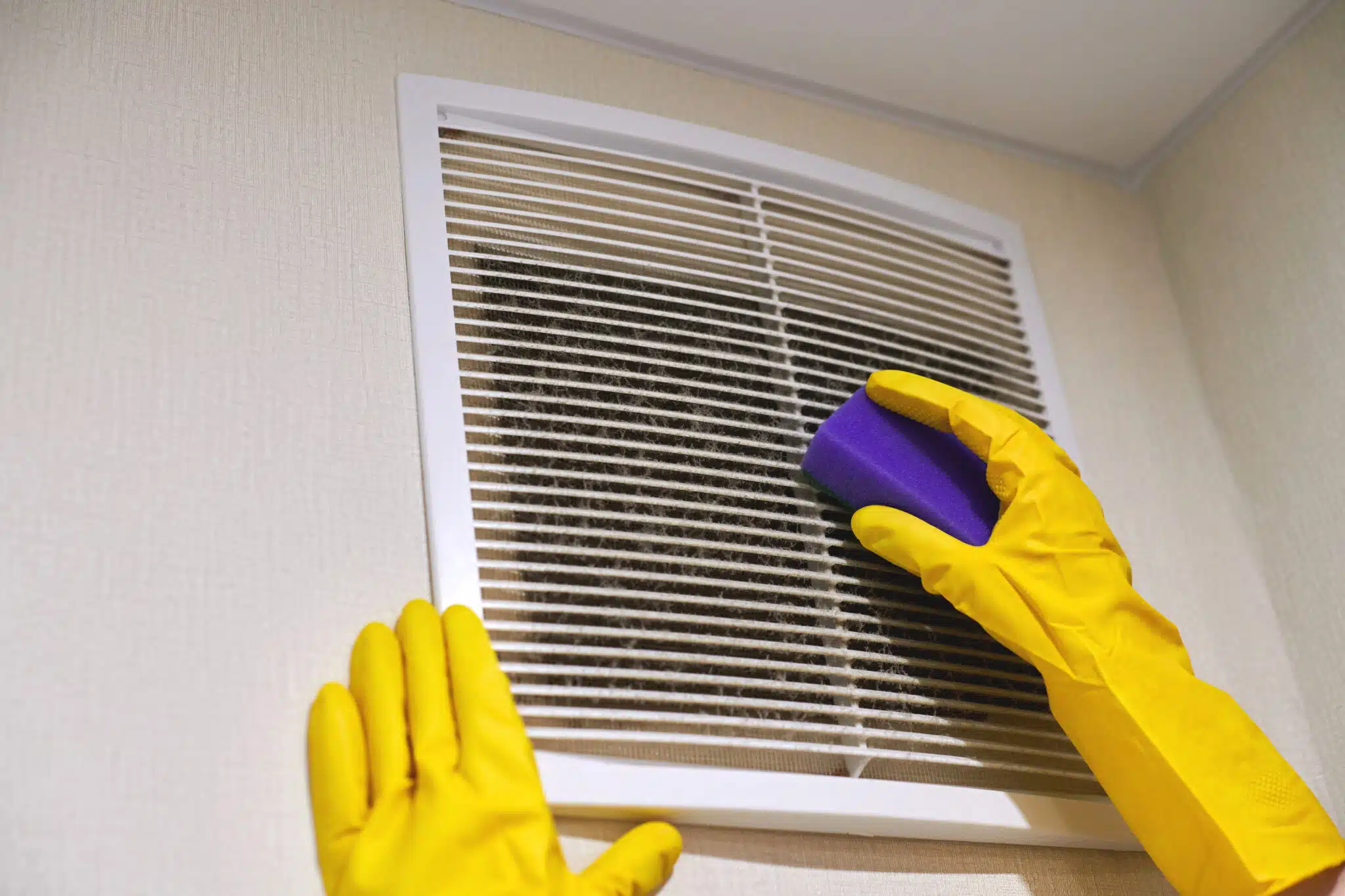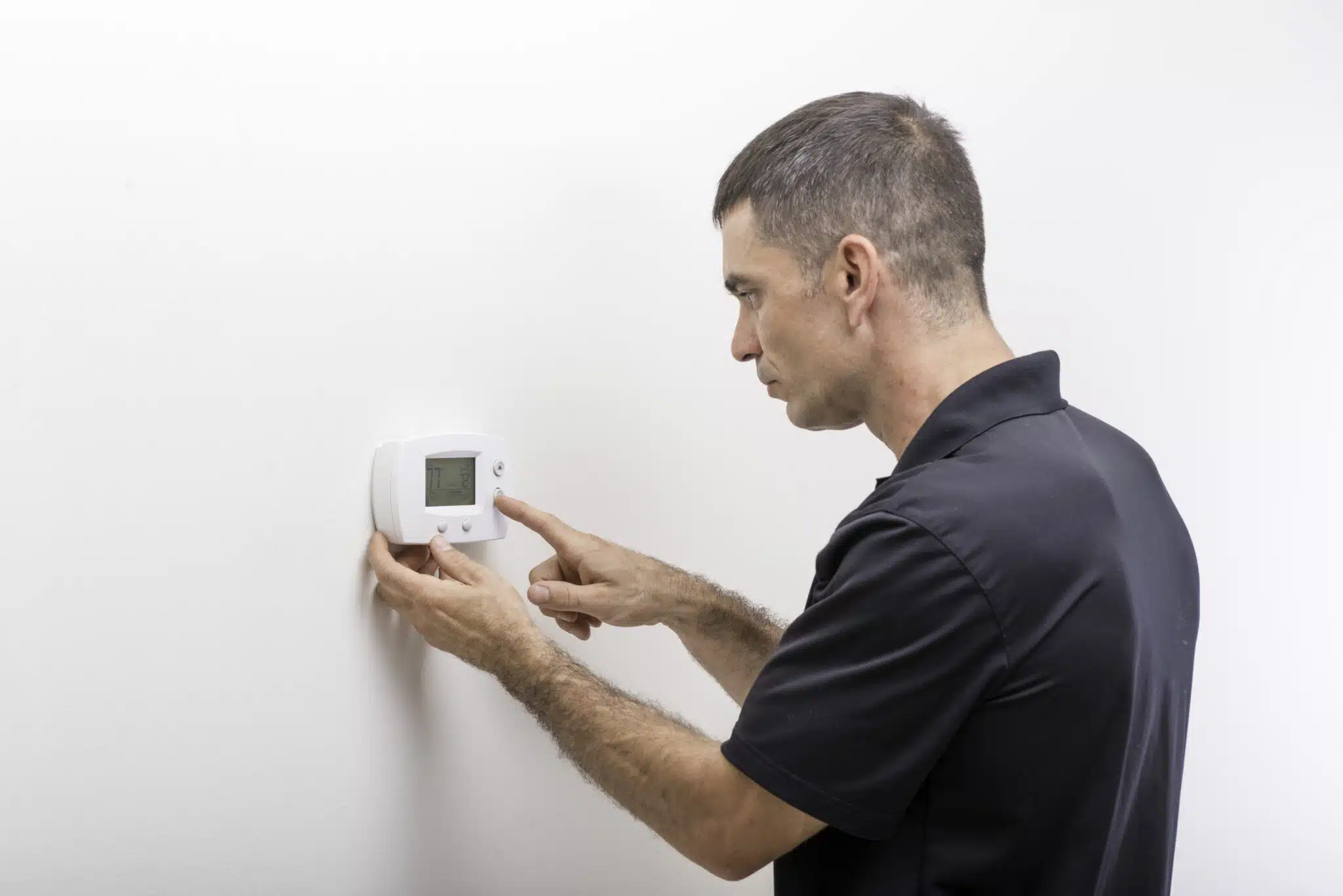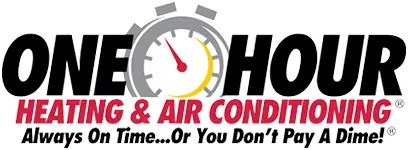Are indoor allergens like dust, mold, and pet dander disrupting your home’s comfort? Proper heating maintenance can be a key solution. A well-maintained HVAC system with high-quality filters captures these airborne allergens, limiting their spread.
Regular heating maintenance also ensures optimal humidity levels, creating an environment less hospitable to allergens like dust mites and mold. Together, these steps not only boost indoor air quality but also promote a healthier, allergen-free living space.
The Role of HVAC Systems in Allergen Management
HVAC systems are central to reducing indoor allergens by filtering, circulating, and conditioning air throughout the home. These systems utilize high-quality filters that trap common allergens like dust, pet dander, and pollen, effectively removing them from the air supply.
Regular heating maintenance, including filter changes and system cleaning, ensures this filtration remains efficient, helping prevent allergen buildup and allowing for a continuous flow of cleaner air.
Beyond filtration, HVAC systems play a significant role in controlling indoor humidity levels, which is vital in managing allergens. Dust mites and mold—two major allergens—thrive in humid conditions.
When an HVAC system regulates humidity to an optimal range (between 30% and 50%), it creates an environment that discourages the growth of these allergens. This balance makes the air not only more comfortable but also healthier, reducing potential triggers for allergy and asthma sufferers.
Through consistent maintenance and attention to filtration and humidity control, HVAC systems provide a powerful defense against indoor allergens, contributing to a cleaner and safer indoor environment year-round.

Regular Air Filter Replacement
Regularly replacing your HVAC air filter can dramatically improve indoor air quality, reduce allergens, and enhance the efficiency of your heating system. Here are four compelling reasons why making this simple maintenance step part of your routine is essential for a healthier home:
Capture More Allergens with High-Efficiency Filters
Standard air filters are effective to an extent, but high-efficiency filters, like those with MERV 11 or higher ratings, are designed specifically to trap finer particles, including dust, pet dander, and pollen. These filters help to keep the air cleaner and reduce symptoms for allergy-prone individuals, offering an effective defense against circulating allergens that could otherwise aggravate respiratory health issues.
Prevent Clogs and Optimize HVAC Performance
When filters aren’t changed regularly, they become clogged with particles, which restricts airflow and forces your HVAC system to work harder. This not only drives up energy costs but also reduces the system’s capacity to filter the air properly, allowing allergens to circulate unchecked. Clean filters ensure smooth airflow and keep the system running efficiently, which means cleaner air with less effort and cost.
Adapt Filter Changes to Seasonal and Household Needs
For the best results, it’s smart to replace filters every 1-3 months, adjusting based on the number of people in the household, the presence of pets, and seasonal allergen levels. During peak allergy seasons—typically spring and fall—replacing filters more frequently helps capture the extra allergens in the air, maintaining a more allergen-free environment all year.
Extend HVAC Lifespan and Improve Indoor Health
Regular filter replacements protect your HVAC system from excessive wear by preventing dust and debris buildup. This small maintenance step not only extends the lifespan of your HVAC unit but also promotes a healthier indoor environment, as clean filters allow the system to consistently deliver fresher air. For homes with allergy sufferers, these routine changes offer peace of mind by helping to keep the air as clean as possible.
Making air filter replacement a priority is a simple, cost-effective step toward a cleaner, healthier home. These small efforts support your HVAC system, your budget, and the health of everyone in your home.
Ductwork and Vent Cleaning for Allergen Reduction
Proper ductwork and vent cleaning are vital aspects of heating maintenance, significantly reducing allergens and improving air quality. Here’s why focusing on these areas of HVAC care is crucial:
-
Enhanced Air Quality through Professional Duct Cleaning
Dust, pollen, pet dander, and mold can build up in ductwork over time. When heating systems are active, they can redistribute these allergens, exacerbating symptoms for sensitive individuals. Professional duct cleaning clears out these particles, ensuring cleaner air circulation. This routine heating maintenance task can noticeably reduce airborne irritants and provide a healthier environment.
-
Prevent Dust Accumulation in Air Returns and Vents
Air returns and vents often trap dust and particles, which are then circulated back into your living space. Regularly wiping down return grilles with a damp cloth helps, but professional cleaning removes built-up allergens thoroughly. As part of heating maintenance, this keeps airflow efficient and ensures that your HVAC system isn’t cycling dust back into the home.
-
Optimize HVAC Efficiency and Prolong System Lifespan
Removing debris from ductwork and vents plays a critical role in improving HVAC efficiency and overall performance. This heating maintenance step ensures that your system operates with minimal resistance, supporting consistent air quality and system longevity.
By clearing out dust, allergens, and buildup, HVAC systems can maintain optimal airflow, enhancing indoor comfort and contributing to a healthier home environment. Regular cleaning also helps to reduce allergens circulating through your air, offering a tangible benefit for both comfort and air quality.
Incorporating duct and vent cleaning into regular heating maintenance is a small investment with big returns in health, comfort, and HVAC efficiency.
Humidity Control to Prevent Mold and Dust Mites
Maintaining optimal indoor humidity is essential for effective heating maintenance, particularly in reducing mold and dust mites. Here’s how controlling humidity helps:
Maintain Optimal Humidity Levels (30-50%)
Keeping your home’s humidity between 30% and 50% prevents allergens like mold and dust mites from thriving. Both allergens rely on high moisture levels to grow, especially in closed spaces with limited airflow. Monitoring humidity with a hygrometer and adjusting with a dehumidifier in moisture-prone areas can make a significant difference. Dehumidifiers reduce air moisture, creating an environment that discourages allergen growth.
Use Dehumidifiers in High-Moisture Areas
High-moisture spaces, such as basements, bathrooms, and kitchens, benefit immensely from dehumidifiers as part of regular heating maintenance. Portable units work well for smaller rooms, while whole-house dehumidifiers can handle larger spaces. Reducing humidity here directly limits allergen growth, contributing to a healthier home and an efficient HVAC system.
Fix Leaks and Ventilate for Mold Control
Repairing leaks promptly is another critical step in reducing hidden moisture that fuels mold. In high-humidity areas, exhaust fans or open windows can promote airflow and prevent moisture buildup. Proper ventilation works hand-in-hand with heating maintenance to keep moisture low, further reducing allergen risks.
These simple but powerful humidity control steps keep allergens at bay, enhancing air quality and HVAC efficiency.
Whole-Home Air Purifiers and UV Light Systems
Whole-home air purifiers and UV light systems are excellent enhancements to heating maintenance, particularly in West Chester, PA, where seasonal allergens are a common issue. Here’s how these systems can make a significant difference:
Exceptional Allergen Filtration with HEPA Purifiers
HEPA air purifiers are designed to capture up to 99.97% of particles as small as 0.3 microns, including dust, pollen, and pet dander. Integrating a HEPA filter with your HVAC system ensures that clean air circulates throughout your West Chester, PA, home, reducing allergens that trigger symptoms. This level of filtration is particularly beneficial for allergy-prone households, as it significantly improves indoor air quality by removing pollutants from the air.
UV Light Systems for Bacteria and Mold Control
UV light systems go beyond filtration by deactivating biological contaminants such as bacteria, mold spores, and viruses that traditional filters cannot capture. Installed within the HVAC unit, UV lights neutralize these microorganisms as air passes through, minimizing their spread. This feature is especially useful in humid climates like West Chester, PA, where mold can quickly develop, making UV systems an essential addition to heating maintenance.
Year-round allergen Reduction for Enhanced Comfort
Together, whole-home HEPA purifiers and UV light systems provide ongoing, comprehensive allergen reduction. These systems continuously capture and neutralize pollutants, supporting efficient HVAC operation and enhancing the comfort and health of your home. By investing in these systems as part of regular heating maintenance, West Chester, PA, homeowners gain peace of mind, knowing they’re creating a cleaner, healthier indoor environment for their families.
Incorporating these solutions into heating maintenance improves HVAC efficiency, boosts air quality, and delivers year-round protection against indoor allergens, making it a wise investment for West Chester, PA, residents.

Seasonal Maintenance and Cleaning Tips
Seasonal HVAC maintenance is essential for optimal performance, especially before peak allergy seasons when indoor air quality needs extra care. Following these heating maintenance steps, each season can significantly reduce allergens and ensure efficient operation:
-
Replace Air Filters at the Start of Each Heating Season
Replacing air filters is one of the most impactful steps in heating maintenance. High-quality filters, particularly those with a MERV rating of 11 or higher, effectively trap allergens like dust, pollen, and pet dander. By changing filters before allergy-prone seasons such as spring and fall, you can prevent these allergens from circulating and maintain efficient airflow. This simple practice not only enhances air quality but also helps the system operate smoothly and reduce energy costs.
-
Clean HVAC Components for Dust and Allergen Reduction
Dust, mold spores, and other allergens can build up in air returns, ducts, and registers during off-seasons. As part of seasonal heating maintenance, thoroughly cleaning these components minimizes the spread of allergens when you switch the system back on. For deep cleaning, professional duct services every few years are recommended to ensure the entire system remains contaminant-free, which is especially beneficial for allergy-prone households.
-
Inspect Thermostats for Efficiency and Comfort
Regular thermostat calibration is crucial in seasonal heating maintenance. A well-calibrated thermostat promotes balanced heating, minimizing HVAC strain and improving indoor air quality by maintaining consistent temperature and humidity levels. Proper thermostat settings not only increase comfort but also prevent unnecessary energy use during high-allergen seasons.
These seasonal heating maintenance practices ensure that your HVAC system operates at its best, keeps allergens under control, and enhances your home’s overall air quality and comfort.
Professional HVAC Inspections and Maintenance
Annual professional HVAC inspections are a key aspect of effective heating maintenance, helping keep allergens at bay while ensuring system efficiency. Here’s why these inspections are so important and what technicians focus on to improve indoor air quality:
Optimizing Filtration and Component Efficiency
During an inspection, HVAC professionals examine and replace air filters, which play a crucial role in trapping allergens such as dust, pollen, and pet dander. For homes with allergy-prone individuals, technicians often recommend high-efficiency filters (like MERV 11 or higher), which capture even finer particles. Professionals also clean components such as blower fans and coils, preventing dust accumulation that could otherwise be recirculated into your home’s air, and supporting both efficient heating and effective allergen control.
Duct and Vent Inspection for Allergen Control
Over time, ducts and vents can collect dust, mold spores, and other allergens, creating a breeding ground for air quality issues. Technicians inspect these areas for blockages, dust accumulation, and signs of mold growth. In some cases, a duct cleaning service may be recommended to eliminate contaminants, improve indoor air quality, and reduce allergy risks significantly.
Calibration of Thermostats and Humidity Control
Proper thermostat calibration ensures consistent heating and efficient HVAC function. Technicians also verify that humidity control systems are functioning optimally, as maintaining indoor humidity between 30% and 50% deters mold and dust mites, two major allergens that thrive in moist environments. This careful calibration keeps heating maintenance effective, supporting both comfort and allergen reduction.
Annual inspections are a small investment that yields big benefits in air quality, system efficiency, and comfort. For allergy-sensitive households, professional heating maintenance is an essential step in creating a cleaner, healthier indoor environment year-round.
Considering Whole-House Humidity and Air Quality Control Systems
Whole-house humidity and air quality control systems are highly effective in supporting heating maintenance by improving indoor air quality and reducing allergens. Here’s why integrating these systems into your HVAC unit is beneficial for your home:
-
Enhanced Allergen Filtration Across All Rooms
Whole-house air purifiers connect directly to your HVAC system, filtering air in every room to capture allergens like dust, pollen, pet dander, and mold spores. Unlike standalone purifiers, these integrated systems ensure that every space receives the same level of air filtration, minimizing allergens throughout the home and helping individuals sensitive to these irritants experience consistent air quality year-round.
-
Consistent Humidity Control for Allergen Prevention
Maintaining indoor humidity between 30% and 50% is key for deterring allergens, particularly mold and dust mites that thrive in moist environments. Whole-home dehumidifiers work in sync with your HVAC unit to continuously regulate humidity across the entire home. This consistent control helps prevent the buildup of allergens that often contribute to respiratory issues, especially during high-humidity seasons.
-
Optimized HVAC Efficiency and Comfort
By keeping air free of excess moisture and allergens, whole-house systems support optimal HVAC efficiency. Clean, humidity-balanced air reduces strain on the HVAC system, making it more energy-efficient and extending its lifespan.
Additionally, these systems keep temperature and air quality steady, improving comfort and ensuring the entire home feels fresher. This all-in-one approach to heating maintenance offers a healthy, allergen-reduced environment that enhances both system performance and indoor comfort.
Whole-house humidity and air quality control systems are valuable investments for maintaining cleaner air, reducing allergens, and supporting efficient heating maintenance throughout the year.
FAQS About Heating Maintenance
-
How often should HVAC filters be changed?
HVAC filters should typically be replaced every 1-3 months, especially during allergy seasons. Fresh filters improve air quality and system efficiency by trapping dust, pet dander, and other allergens that can otherwise recirculate indoors.
-
What are the best filters for capturing allergens?
HEPA filters or those rated MERV 11 or higher are ideal for capturing allergens. These high-efficiency filters trap finer particles such as pollen, pet dander, and dust mites, which standard filters often miss.
-
Does cleaning air ducts help reduce allergens?
Yes, professional duct cleaning every few years removes built-up dust, mold spores, and other allergens. Clean ducts prevent these particles from circulating back into the air, helping to maintain healthier indoor air.
-
How does humidity control prevent allergens?
Maintaining humidity between 30% and 50% helps deter allergen growth, especially dust mites and mold, which thrive in moist environments. Integrated dehumidifiers are effective in achieving this balance as part of regular heating maintenance.
-
Can UV lights in HVAC systems help with allergens?
UV lights installed in HVAC systems deactivate biological allergens, such as bacteria and mold spores, reducing irritants and supporting cleaner indoor air.
Regular heating maintenance is a powerful way to reduce allergens and improve air quality in your home. One Hour Heating & Air Conditioning of Lancaster, serving West Chester, PA, provides expert services like high-efficiency filter replacements, duct cleaning, and humidity control to keep allergens at bay.
Their comprehensive approach ensures cleaner air and optimal HVAC performance, offering you a healthier, more comfortable living environment year-round. Trust their expertise to keep your home’s air clean and your HVAC system running smoothly.





